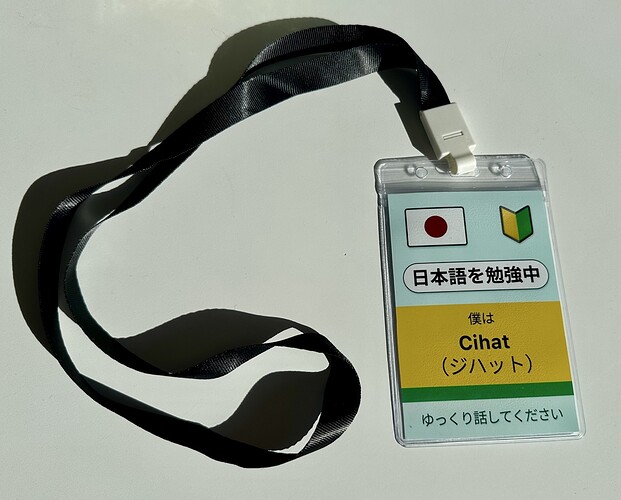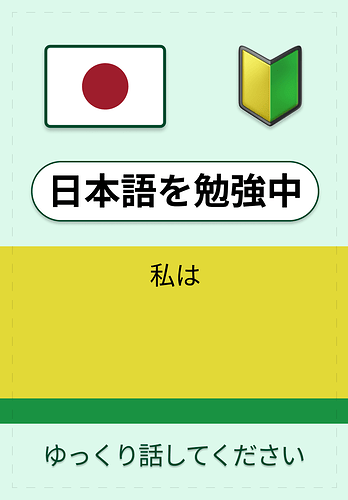Hello Bunpro community!
I’m heading to Japan for 7 weeks in April to improve my Japanese while working remotely. After several previous trips, I’ve noticed a common challenge: even when trying to speak Japanese, conversations often default to English once people recognize I’m struggling.
To overcome this, I created a simple solution – a badge on a lanyard with:
- The Japanese beginner symbol

- “日本語を勉強中” (I’m studying Japanese)
- “ゆっくり話してください” (Please speak slowly)
- My first name with “僕は” (I am) before it
The beginner symbol (famously used by new drivers in Japan) signals that I might need extra patience and struggle in challenging situations. I deliberately kept it simple – no demanding phrases like “please use simpler terms,” as the symbol itself should convey this already. But from my experience, it’s easy for people to forget that we need more time to process, so I kept the hint to speak slowly.
My name is on the badge because Japanese conversations often reference the person by name (like “[Name]-san”) rather than using generic terms like “you.” This should make interactions more comfortable. I chose my first name since it’s easier to pronounce than my last name.
I chose a lanyard over t-shirts or stickers (which I had considered first) for practicality – it works with any outfit and in any weather. It’s also easy to hide it when I’m not in the mood to talk.
Here’s how it turned out:
I created a version in case anyone wants to make their own (add your name & cut at the dashes):
What do you think? Any other tips for maximizing Japanese practice during my trip? My goal is to use Japanese as much as possible and look up anything I don’t understand later.



 )
) I think it’s a great idea if you’ve got the cojones to actually wear it in public.
I think it’s a great idea if you’ve got the cojones to actually wear it in public.

